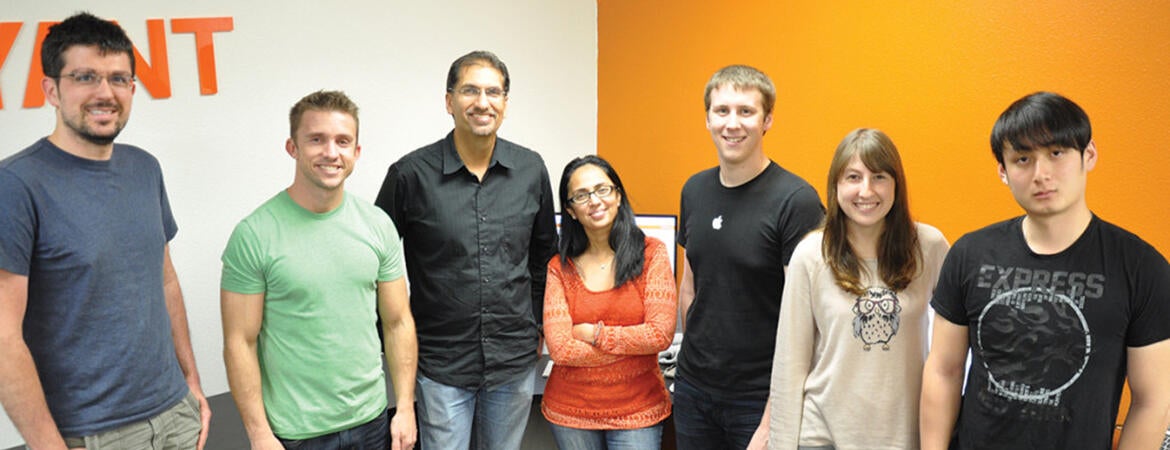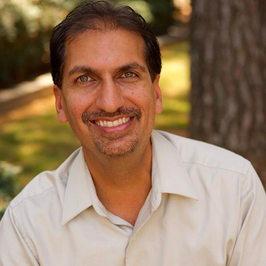
In seventh-grade, Frank Vahid would ask if there was a better way to learn Spanish. In high school, he wondered how he would use what he learned in his classes in real life. Vahid would come to the realization that much of what he had learned in his undergraduate math courses was not applicable as a working engineer.
These concerns prompted the Department of Computer Science and Engineering professor to develop better ways of teaching and learning. Vahid’s efforts in improving the education experience and learning outcomes will continue in his new role as the deputy director of college-level digitally enabled learning and teaching for the Bill and Melinda Gates Foundation.

“The most compassionate thing we can do for students is to help them learn the skills — including math skills — that they need to be successful in the world,” said Vahid, who will retire as a Marlan and Rosemary Bourns College of Engineering (BCOE) professor at the end of 2023.
In his new role, Vahid will lead a team of program officers and staff “in leveraging the power of data and technology to improve teaching and learning,” Patrick Methvin, the foundation’s director of pathways and postsecondary success strategy, said in a December 11 LinkedIn post. The foundation’s philanthropic mission is “to create a world where every person has the opportunity to live a healthy productive life.” It supports efforts that target global issues such as poverty, health, gender equality, economic development, and education; having given $7 billion to charity and awarded 1,969 grants in 2022.
“The Gates Foundation opportunity was really appealing because its whole mission is to help others,” Vahid said. “I look forward to helping utilize the foundation’s resources to substantially improve success rates for college students across the country.”
Vahid, who earned a Ph.D. in computer science from UC Irvine, has been a BCOE faculty member since 1994. In addition to computing systems, his research interests include college-level computer science and STEM (science, technology, engineering, and mathematics) education and online education—especially core classes typically taken by first- and second-year students. Vahid started teaching computer science at BCOE in 1994.
Vahid’s passion for improving teaching and learning methods have gone beyond the lab and lecture hall.
In 2012, he launched zyBooks, a company that developed a web-based platform to deliver interactive, STEM-based material for students and instructors. Diverging from standard print textbooks, zyBooks materials rely on evidence-based questions sets, animations, interactive tools, and embedded homework to help students “learn by doing.” Acquired by academic publisher Wiley in 2019, today zyBooks serves 500,000 students per year at over 1,000 universities.
Vahid is also the founder of College Student Advocates, a nonprofit that works to directly assist undergraduate students — especially those who come from low-income families and underrepresented communities, and are first-generation — and help them graduate college and succeed.

He cites improved retention rates among BCOE’s computer science majors as an example of progress made to learning outcomes. Retention rates among first-year students increased from about 60 to 65 percent to about 90 percent retention, including for low-income, first-generation, underrepresented students, and women. Vahid attributes this to two factors: improved interactive learning content, and highly effective instructors who are supportive, positive, and make students feel welcome.
“We really have good computer science [instructors],” he said. “They are really good at what they do, and they know how to teach the subject matter.”
Vahid’s interest in pursuing new ways of learning and teaching goes back to his seventh-grade Spanish class when he would wonder, “Isn’t there a better way of learning Spanish?” In his high-school math classes, he would wonder about how he would end up applying this knowledge outside the classroom. Later, Vahid said, he realized a disconnect between what he learned in his undergraduate math courses and what he utilized as an engineer.
“I had to learn all this math, and then for actual engineering, we only needed a tiny fraction of the math,” he recalled. “Why spend so much time learning all this extra stuff, when there’s so much more to learn? I thought, ‘There has to be a way to learn the 30 to 40 percent that you actually need but still have learned the beauty of math.’”
Student learning can be improved if they are taught the numerous ways that math — and other academic subjects — is relevant in everyday life, Vahid said. Outside academics, math is highly useful in evaluating medical-insurance premiums, weighing the pros and cons of renting versus buying, and choosing whether to use credit cards, for example, he said.
In his new deputy director role at the foundation, Vahid hopes to commit this latest chapter in his career to that goal.
“I’m really excited about helping more people become more competent in their world,” he said.
Header photo: Frank Vahid (third from left), Department of Computer Science and Engineering professor and zyBooks co-founder, and fellow zyBooks cofounder Smita Bakshi. (Photo credit: 2016 UCR The Highlander)